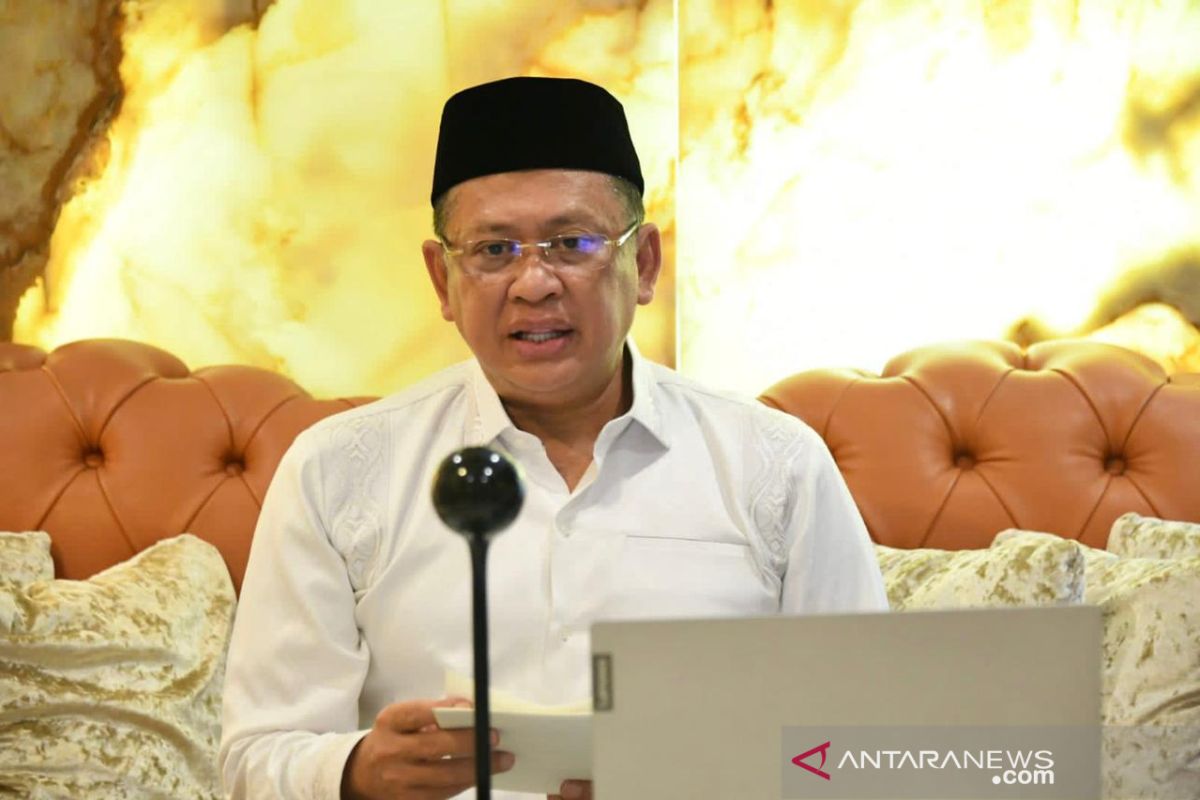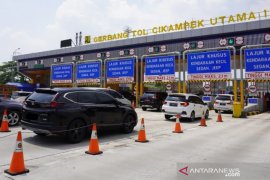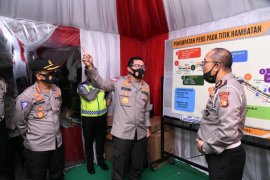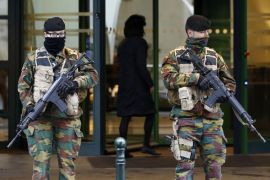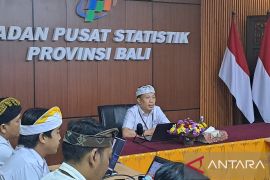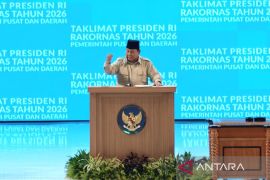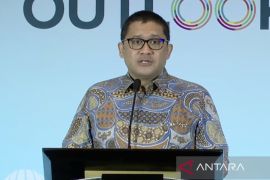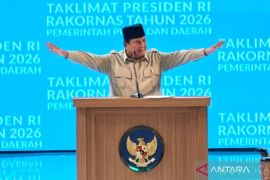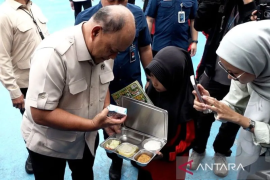Islam teaches us to not give up in dealing with various calamities. We must believe that there is ease after difficulty. Allah will not make it difficult for humans beyond their capabilities. However, we must also not forget that Allah will not changJakarta (ANTARA) - Chairman of the People's Consultative Assembly (MPR) Bambang Soesatyo believes Islamic New Year offers a momentum to self-evaluate and introspect.
"The goal is to evaluate what has been done, so that in future, we can make improvements in everything," Soesatyo noted in his statement here on Tuesday.
The MPR chairman made the statement during the "Year-End Reflection on the Commemoration of the Islamic New Year 1 Muharram 1443 H" held virtually by TV NU.
Soesatyo deemed it important to conduct self-evaluation amid the global crisis caused by the COVID-19 pandemic.
On the occasion, Soesatyo lauded the steps taken by the Nahdlatul Ulama Executive Board (PBNU) that had helped to disseminate information on the COVID-19 vaccination program.
"The PBNU is also actively forging synergy with various institutional entities, including the army and police, in various mass vaccination programs. This step is taken as a form of service to the nation and state," he affirmed.
According to Soesatyo, the COVID-19 pandemic that hit almost all countries had a much greater detrimental impact than the global recession around 1930 that had afflicted 83.8 percent of the countries worldwide.
According to data as of August 8, more than 203 million positive cases of COVID-19 were recorded worldwide. The pandemic also claimed the lives of over four million people.
Related news: Vaccination key to economic, tourism recovery: MPR speaker
"Islam teaches us to not give up in dealing with various calamities. We must believe that there is ease after difficulty. Allah will not make it difficult for humans beyond their capabilities. However, we must also not forget that Allah will not change the fate of the people unless they change it themselves," he emphasized.
On the same occasion, Soesatyo was also proud of the Indonesian people since during the COVID-19 pandemic, they had continued to uphold national solidity. He cited an example of data from the National Amil Zakat Agency (BAZNAS) that pointed to an increase by 30 percent in the amount of Zakat, Infaq, and Alms (ZIS) received by BAZNAS in 2020 despite the ongoing crisis due to the pandemic.
The World Giving Index data also indicated that Indonesians were the most generous people in the world during the pandemic. The data confirms that zakat was one of the drivers of public generosity.
Related news: Lack of nationalism among youth a 'time bomb': MPR chairman
"Muslims feel they have a responsibility to follow Islam as a religion full of grace. The message from Caliph Ali bin Abi Talib, also conveyed by the UN Legal Commission, stated that all people are brothers in humanity. That statement became a message that is one of the foundations of the universal positive law," he affirmed.
On the occasion, Soesatyo also highlighted that Indonesia was finally able to record an economic growth of 7.07 percent in the second quarter of 2021 after nine months of crisis due to the pandemic.
To maintain this economic growth, all parties must contain the surge in COVID-19 cases.
"Each one of us has a role to realize this by being disciplined in complying with health protocols, implementing a clean and healthy lifestyle, and vaccinating voluntarily," he affirmed.
Related news: Capital market sentiment depends on COVID handling: OJK
Related news: Sharia economy progressing well, growing promisingly: VP Amin
Translator: Imam Budilaksono, Katriana
Editor: Fardah Assegaf
Copyright © ANTARA 2021
